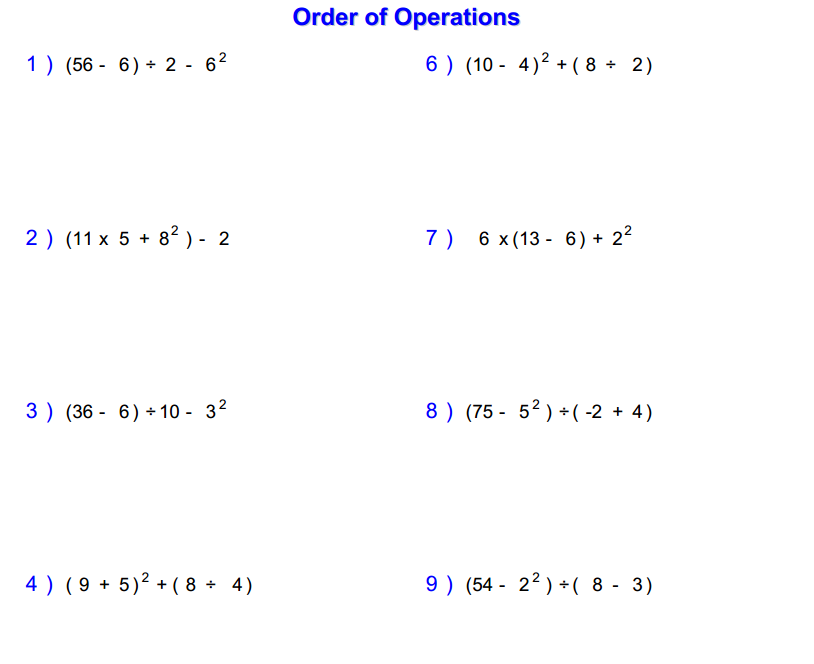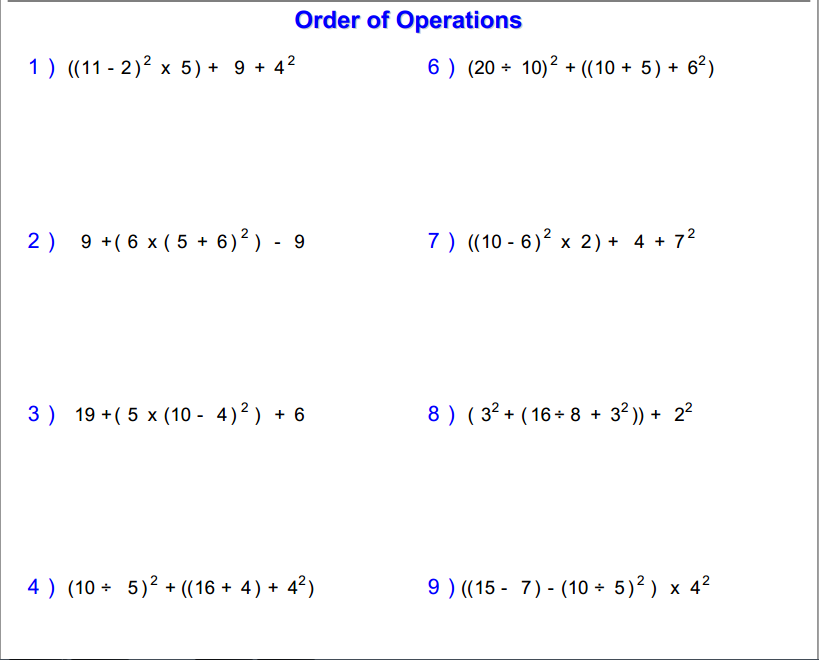One of the most important practices I keep is "leveling assignments." I do this with nearly every concept I teach. Because I teach intervention, this is easy to do, but it can still be done with major concepts in a general ed classroom.
Here is why I find this SO important:
1. People are intrinsically motivated to "level up".
2. Students will work quickly through assignments which are too easy, providing a natural review.
3. Success breeds success. Completing the first level leads students to believe they can complete the next. Conversely, if a student fails at the first couple of problems on a non-leveled assignment, they will likely give up.
4. This allows me to identify the EXACT area of confusion.
5. Students can get the help they need before becoming frustrated.
Think of this as a video game. The ultimate goal is the worksheet/assignment that you want them to complete, and the levels are easier precursor work that gets them there. This is similar to unit planning, which breaks a very large concept into smaller pieces. I am simply taking that smaller piece and breaking it down even further.
To illustrate, let's look at an Order of Operations lesson in my classroom. My end goal is for my students to solve a problem like this:
For students with math difficulties, there are many opportunities for them to get lost along the way.
1. Adding/subtracting wrong
2. Multiplying/dividing wrong
3. Mistaking exponents for multiplication. 4^2 =8
4. Unsure of the nested parentheses
5. Forgetting to use PEMDAS
6. Forgetting to compute multiplication/division and addition/subtraction from left to right
If I were to give my students this problem, even with an outstanding lesson, chances are their work would be riddled with errors.
So, instead, I present this worksheet as "Level 10," while providing 9 previous levels for them to complete.
Do all my students reach Level 10 in the allotted amount of time? No.
The students who do not reach Level 10 have such significant issues, making it difficult for them to reach this stage. However, I can say with certainty, that they would not have been able to complete this assignment independently without the leveling system.
The leveling system does take time, and I have to accept that not all my students will make it to the level that I want. I would much rather, though, that my student make it to Level 7 than to fail at Level 10. He still may not be where I want - where he needs to be.
This is FAR better than being at 0!
Click here to create your own leveled Order of Operations worksheets from math-aids.com.
RELATED POSTS
Gamification One of the newest buzzwords of education is GAMIFICATION. Put shortly, gamification means using game principles to engage and motivate students. Gamification is NOT putting a student in front of a computer all day, every day.
Learning vs. Laundry: 12 Ways to Engage the Online Learner The power of online education extends far beyond providing access to non-traditional students -those who are limited by time, location, or expense. It has the power to transform and revitalize the educational experience for the learner.
From Fractions to Felonies (Part 1) Juvenile detention may seem like an odd topic for a math blog, but from my perspective, there is a direct correlation. To illustrate this, let's trace the path for a typical juvenile offender backwards.
The Flipped-Then-Re-Flipped Classroom As exciting as flipped classrooms are, the question is always asked, "What about the students who don't have the technology?"
Learning Gaps One of the most common frustrations heard from secondary math teachers: HE SHOULD ALREADY KNOW THIS! HOW CAN I TEACH HIM MATH IF HE DOESN'T KNOW HIS BASIC SKILLS?!?!
Why Do So Many Students Have Math Learning Gaps? The blame for these gaps tends to get placed in two ways: 1. Elementary teachers are incompetent in math, and, because of this, they have not adequately prepared their students for higher math.
Here is why I find this SO important:
1. People are intrinsically motivated to "level up".
2. Students will work quickly through assignments which are too easy, providing a natural review.
3. Success breeds success. Completing the first level leads students to believe they can complete the next. Conversely, if a student fails at the first couple of problems on a non-leveled assignment, they will likely give up.
4. This allows me to identify the EXACT area of confusion.
5. Students can get the help they need before becoming frustrated.
Think of this as a video game. The ultimate goal is the worksheet/assignment that you want them to complete, and the levels are easier precursor work that gets them there. This is similar to unit planning, which breaks a very large concept into smaller pieces. I am simply taking that smaller piece and breaking it down even further.
To illustrate, let's look at an Order of Operations lesson in my classroom. My end goal is for my students to solve a problem like this:
For students with math difficulties, there are many opportunities for them to get lost along the way.
1. Adding/subtracting wrong
2. Multiplying/dividing wrong
3. Mistaking exponents for multiplication. 4^2 =8
4. Unsure of the nested parentheses
5. Forgetting to use PEMDAS
6. Forgetting to compute multiplication/division and addition/subtraction from left to right
If I were to give my students this problem, even with an outstanding lesson, chances are their work would be riddled with errors.
So, instead, I present this worksheet as "Level 10," while providing 9 previous levels for them to complete.
Level 1
Four Numbers, Add/Subtract/Multiply/Divide Only
This level helps them understand the importance of left to right
Level 5
4 Numbers, Parentheses and Exponents
Now working with all parts of PEMDAS
Level 10
5 Numbers, All Parts of PEMDAS
While both Levels 5 and 10 require all parts of PEMDAS, Level 10 is significantly more challenging
Do all my students reach Level 10 in the allotted amount of time? No.
The students who do not reach Level 10 have such significant issues, making it difficult for them to reach this stage. However, I can say with certainty, that they would not have been able to complete this assignment independently without the leveling system.
The leveling system does take time, and I have to accept that not all my students will make it to the level that I want. I would much rather, though, that my student make it to Level 7 than to fail at Level 10. He still may not be where I want - where he needs to be.
This is FAR better than being at 0!
Click here to create your own leveled Order of Operations worksheets from math-aids.com.
RELATED POSTS
Gamification One of the newest buzzwords of education is GAMIFICATION. Put shortly, gamification means using game principles to engage and motivate students. Gamification is NOT putting a student in front of a computer all day, every day.
Learning vs. Laundry: 12 Ways to Engage the Online Learner The power of online education extends far beyond providing access to non-traditional students -those who are limited by time, location, or expense. It has the power to transform and revitalize the educational experience for the learner.
From Fractions to Felonies (Part 1) Juvenile detention may seem like an odd topic for a math blog, but from my perspective, there is a direct correlation. To illustrate this, let's trace the path for a typical juvenile offender backwards.
The Flipped-Then-Re-Flipped Classroom As exciting as flipped classrooms are, the question is always asked, "What about the students who don't have the technology?"
Learning Gaps One of the most common frustrations heard from secondary math teachers: HE SHOULD ALREADY KNOW THIS! HOW CAN I TEACH HIM MATH IF HE DOESN'T KNOW HIS BASIC SKILLS?!?!
Why Do So Many Students Have Math Learning Gaps? The blame for these gaps tends to get placed in two ways: 1. Elementary teachers are incompetent in math, and, because of this, they have not adequately prepared their students for higher math.




Comments
Post a Comment